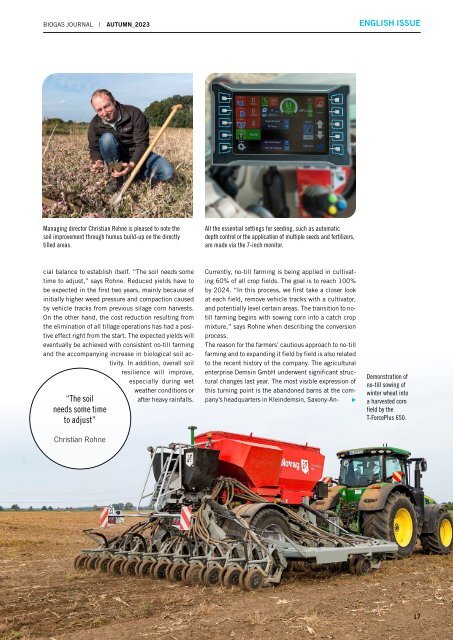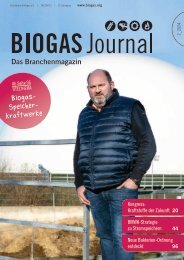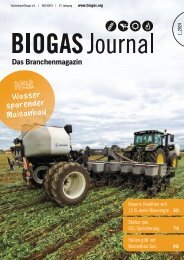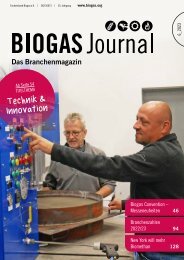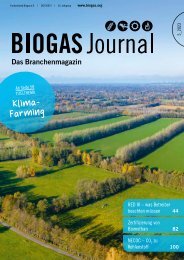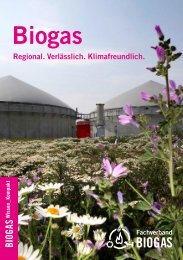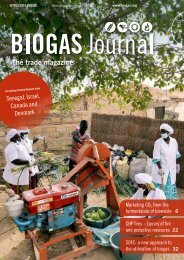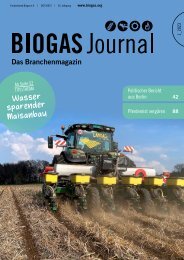Autumn 2023 EN
The German Biogas Association presents its autumn 2023 issue of the English BIOGAS journal.
The German Biogas Association presents its autumn 2023 issue of the English BIOGAS journal.
- No tags were found...
You also want an ePaper? Increase the reach of your titles
YUMPU automatically turns print PDFs into web optimized ePapers that Google loves.
BIOGAS JOURNAL | AUTUMN_<strong>2023</strong> <strong>EN</strong>GLISH ISSUE<br />
Managing director Christian Rohne is pleased to note the<br />
soil improvement through humus build-up on the directly<br />
tilled areas.<br />
All the essential settings for seeding, such as automatic<br />
depth control or the application of multiple seeds and fertilizers,<br />
are made via the 7-inch monitor.<br />
cial balance to establish itself. “The soil needs some<br />
time to adjust,” says Rohne. Reduced yields have to<br />
be expected in the first two years, mainly because of<br />
initially higher weed pressure and compaction caused<br />
by vehicle tracks from previous silage corn harvests.<br />
On the other hand, the cost reduction resulting from<br />
the elimination of all tillage operations has had a positive<br />
effect right from the start. The expected yields will<br />
eventually be achieved with consistent no-till farming<br />
and the accompanying increase in biological soil activity.<br />
In addition, overall soil<br />
resilience will improve,<br />
especially during wet<br />
weather conditions or<br />
“The soil<br />
needs some time<br />
to adjust”<br />
Christian Rohne<br />
after heavy rainfalls.<br />
Currently, no-till farming is being applied in cultivating<br />
60% of all crop fields. The goal is to reach 100%<br />
by 2024. “In this process, we first take a closer look<br />
at each field, remove vehicle tracks with a cultivator,<br />
and potentially level certain areas. The transition to notill<br />
farming begins with sowing corn into a catch crop<br />
mixture,” says Rohne when describing the conversion<br />
process.<br />
The reason for the farmers’ cautious approach to no-till<br />
farming and to expanding it field by field is also related<br />
to the recent history of the company. The agricultural<br />
enterprise Demsin GmbH underwent significant structural<br />
changes last year. The most visible expression of<br />
this turning point is the abandoned barns at the company’s<br />
headquarters in Kleindemsin, Saxony-An-<br />
Demonstration of<br />
no-till sowing of<br />
winter wheat into<br />
a harvested corn<br />
field by the<br />
T-ForcePlus 650.<br />
17


